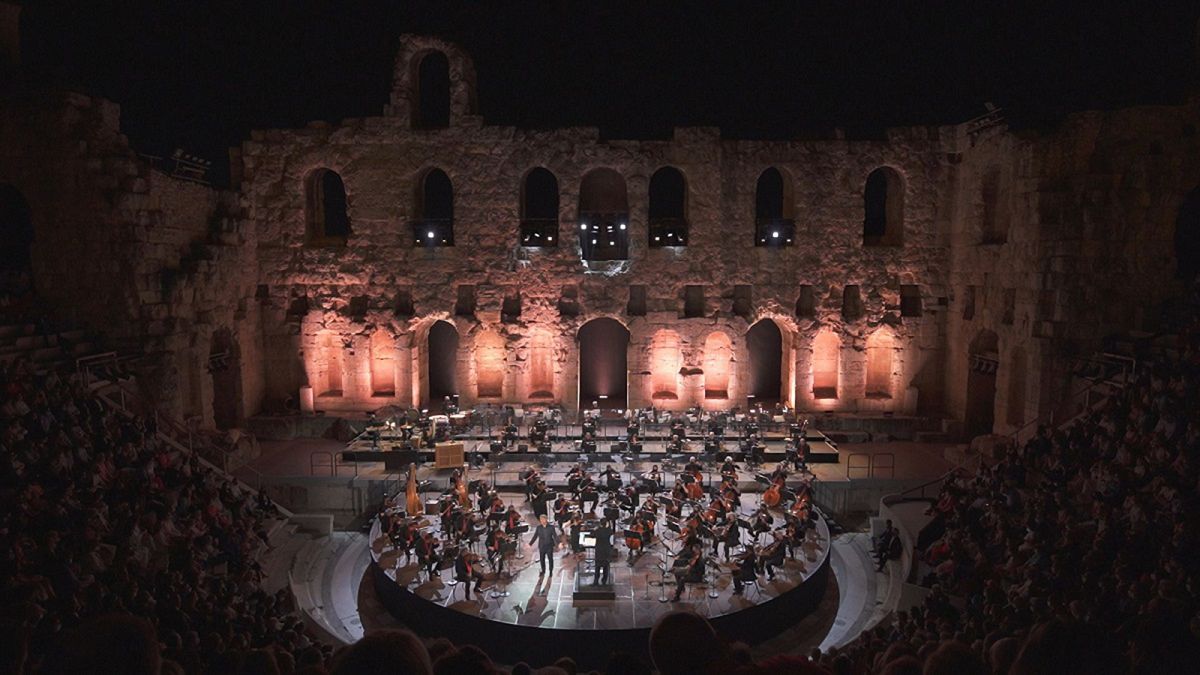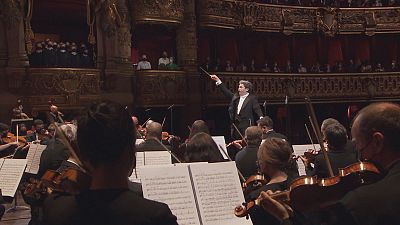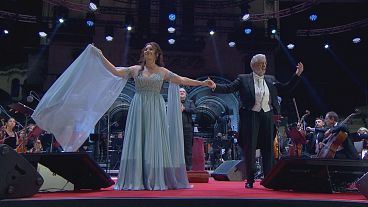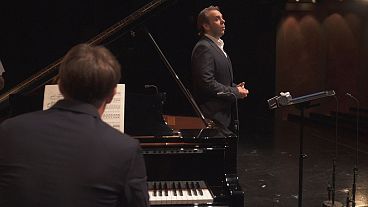For more than 20 years, tenor Jonas Kaufmann has been singing at opera houses all over the world. Now he has made his debut at the Odeon of Herodes Atticus at the foot of the Acropolis in Athens.
The magnificent backdrop of the Odeon of Herodes Atticus in Athens has played host to one of the greatest voices of our times. Jonas Kaufmann's made his debut at the ancient amphitheatre in September and his awe-inspiring performance took spectators on a musical journey.
Under the baton of Jochen Rieder and accompanied by the Greek National Opera orchestra, the musical selection included pieces from Verdi's Aida and Bizet's Carmen to Puccini's Tosca.
The iconic aria, Nessun Dorma, one of Kaufmann's signature songs was also on the programme. It's a song that conductor Rieder describes as being sung by Kaufmann so often that he has lost count. "But each time he sings it, it’s a delight and it makes people happy. It is really an extraordinary experience", he adds.
A musical friendship
The world-famous conductor, Jochen Rieder, has performed in most of the leading opera houses and concert halls. He has worked with some of the most admired soloists and orchestras across the globe, but he has struck a particular musical friendship with Jonas Kaufmann. They also have further concerts planned together before the end of the year.
A godly venue
The Odeon of Herodes Atticus was built in 161 AD. It is one of the oldest venues that Kaufmann has performed at. It dominates the western end on the south slope of the Acropolis.
The Herodion, as it is sometimes otherwise called, was the third Odeon constructed in ancient Athens after the Pericles Odeon on the south slope and the Agrippa's Odeon in Athens' ancient Agora.
Giorgos Koumendakis, the artistic director of the Greek National Opera, says Greece is lucky because it is "full of ancient theatres from the classical and the Roman-Hellenistic period". "We’ve used the enormous energies of these historic places in the best way we know how for so many years."
The Odeon of Herodes Atticus was built by the Roman citizen, Herodes Atticus, who was from an important Athenian family. It was created in the memory of his wife Regilla, who died in 160 AD.
The roofed Odeon originally served mainly for musical festivals and could host up to 5000 spectators. It had a three-story stone front and was expensive to build due to the use of cedar of Lebanon timber.
The building was destroyed around 267 BC after an attack from the Heruli, who burnt and flattened many buildings in ancient Athens. The stands and the stage were eventually restored in the 1950s using Pentelic marble.
Kaufmann explains that he feels there's something "truly fascinating to feel the ancient world's charm and to think that there were already spectators 2000 years ago who listened to art there." He is intrigued by Greece's architectural treasures and during the performance, he even undertook some experiments. He wasn't in what he called the 'acoustic sweet spot', because of the corona safety measures. So he moved to give the audience what he felt was a more impactful experience.
Kaufmann was told by many Greeks on his trip to Athens that he would be able to communicate with the gods during the performance because he was close to their seat. But Kaufmann is humble and simply says "it's very beautiful for an artist to perform at such a historic site."



